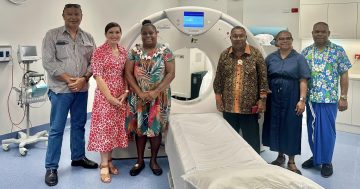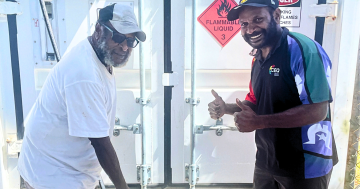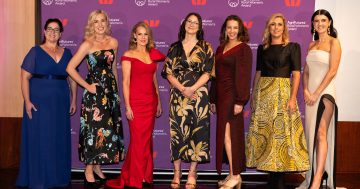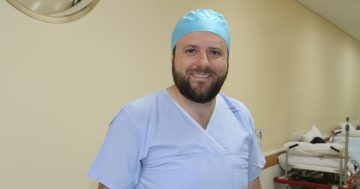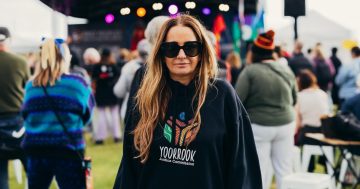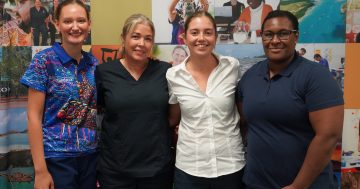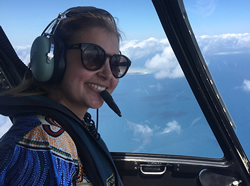 An occupational therapist (OT) working in Far North Queensland, Hollie, from the Aboriginal and Torres Strait Islander Housing Agency, travels by small plane, helicopter or boat to reach remote Torres Strait Islander communities.
An occupational therapist (OT) working in Far North Queensland, Hollie, from the Aboriginal and Torres Strait Islander Housing Agency, travels by small plane, helicopter or boat to reach remote Torres Strait Islander communities.
One of her roles is to assess tenants in public housing who have a medical condition or disability and recommend modifications so they can remain in their homes and live independently.
“One of the great privileges of our role is the opportunity to travel to remote and very beautiful parts of Queensland,” Hollie (pictured) said.
“Most of our customers are Aboriginals or Torres Strait Islanders and each community we work in is unique with its own history. Each community has different traditional owner groups, different families, and may be subject to different cultural protocols.”
She said these were factors that influenced how OT services were delivered.
“For example, being sensitive to Sorry business, where families will perform certain activities when a person has passed,” Hollie said.
“We also consider the role and structure of families within our assessment, because for some families, it can be considered culturally inappropriate for people outside the family to provide carer support.”
She said: “You get to know customers quite well.”
“You are invited into people’s homes, and you get to see how people are living, what’s working and what’s not working. Together, you find a solution that will work for them, their family, and their community”.
Sometimes customers are not aware of the OT services available from the Department.
“I’ve told customers we can do modifications and they’ve been amazed that we can make those changes which means they can go home,” Hollie said.
More information about OT jobs on Housing can be accessed at this PS News link.


